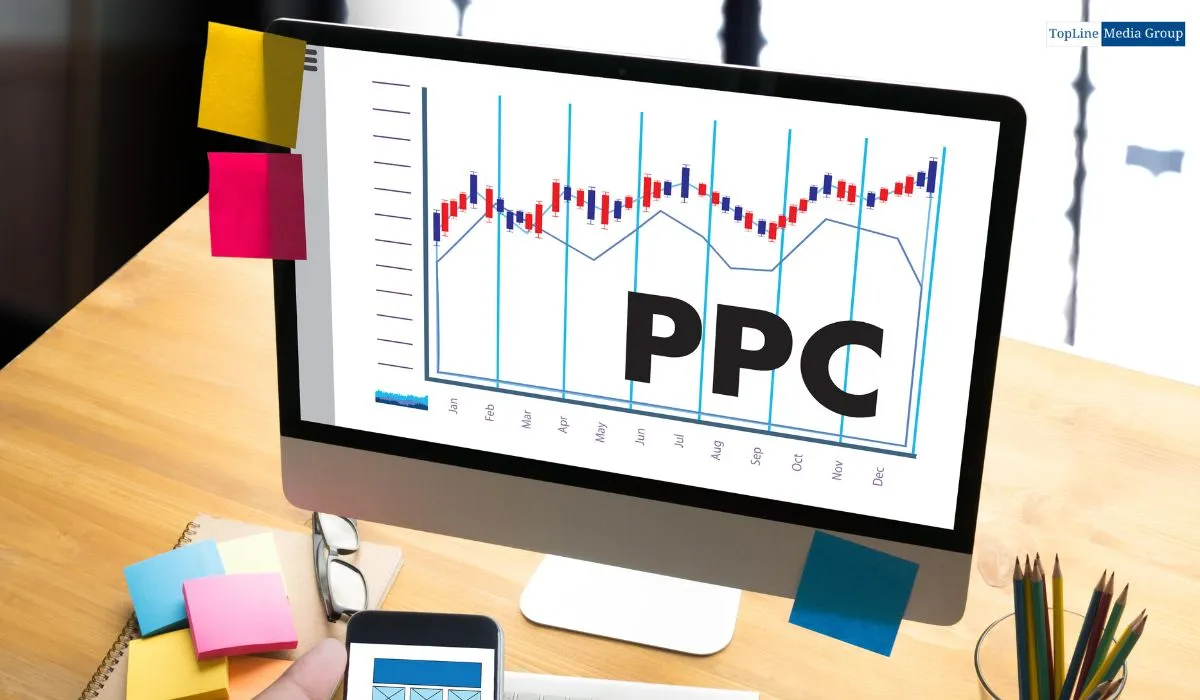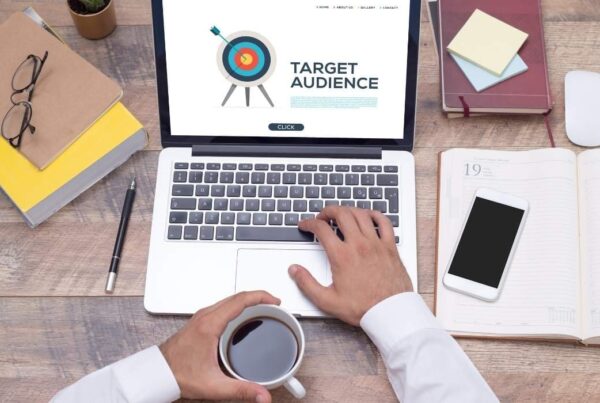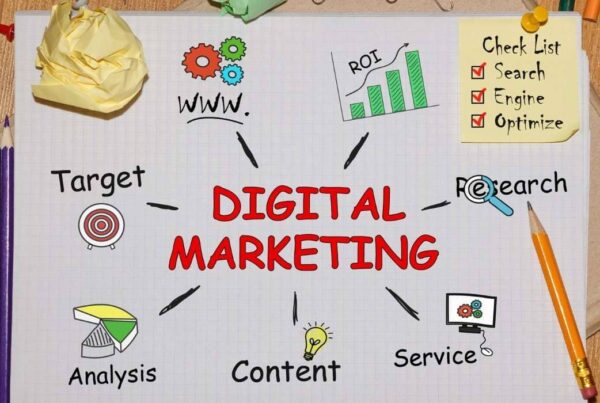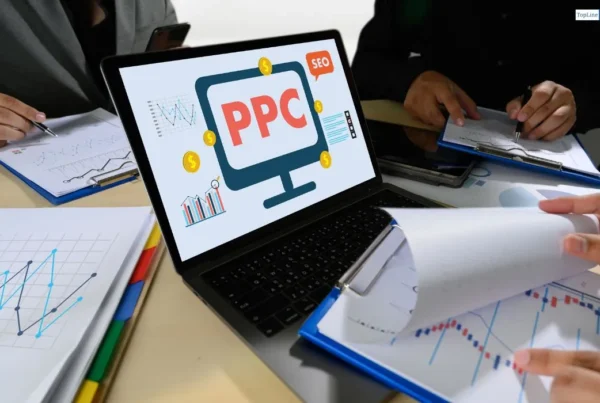Every business in today’s competitive digital world needs that one extra advantage to make it stand out.
This is why the application of Pay-Per-Click Advertising can unlock new customers for your business and drive sales you have never seen before.
Imagine your business shows up at the top of search results when clients are actually looking for what you can give them.
This way of garnering attention does not only win eyeballs but also pays only for authentic engagement rather than impressions.
Want to know how this potent marketing tactic may change the landscape of your business?
Let’s dive in.
What Is Pay-Per-Click Marketing?
Online advertising is commonly referred to as pay-per-click marketing.
PPC is an online advertising model whereby businesses can place ads through search engines and other websites.
In this sense, with PPC, an advertiser pays each time an ad is clicked.
This implies that there are no set costs for traffic since ad clients will be charged according to the number of times that click option is used.
It is a method whereby companies focus on specific audiences by keywords or groups.
When users search for such phrases, your ads will appear at the top, thus targeting more users and, hence, the probability of engagement.
PPC can be formed to fit any budget requirements and goals.
If you want to concentrate on brand awareness or immediate conversion, then PPC is one marketing strategy that could provide a route to achieve desired results efficiently.
PPC vs SEM
Generally, people get confused between PPC and SEM.
Pay-per-click advertising means that there is a pay-per-click model whereby the advertisers pay for the clicks of their advertisements so that traffic can be directly directed to the sites; it is all about immediate visibility on the search engines.
In contrast, SEM encompasses more marketing strategies.
This ranges from paid to organic strategy, such as PPC and SEO.
Instead of PPC only relying on buying ad space, SEM involves a combination of techniques to enhance the online presence of a business.
Knowing the difference helps businesses select the right strategy for achieving goals.
Both have been proven to work differently when delivering to potential customers.
Advantages of Pay-Per-Click Advertising

Pay-per-click puts your business up there right away.
Unlike organic methods, PPC instantly puts you on top of search results.
Thus, it can drive traffic to your website from the very first day.
Its other very apparent advantage lies in its ability to pinpoint targeting.
You can customize your campaigns according to demographics, interests, and behaviors.
Your ads will reach the target audience for better engagement and conversion.
More importantly, the results in PPC are measurable.
Performance can be tracked in real time by detailed analytics tools, and such data refines strategies and optimizes budgets well for maximum return on investment.
Reasons for Using Pay-Per-Click Marketing
Pay-per-click marketing gives you an immediate presence for the business.
Unlike organic approaches, PPC campaigns can immediately place your ads at the top of a search result.
That way, traffic and brand awareness are increased very effectively.
Another reason to use PPC is its ability to focus on particular demographics, interests, and geographics;
by using PPC, you zero in on your target audience, increasing the chances that those individuals will be interested in your offering.
Exact Budget Control.
You decide how much you want to spend per click and set ceilings tied to campaign performance.
That allows you to allocate resources more easily when closely examining ROI.
Elements of Pay-Per-Click Campaigns
An effective Pay-Per-Click campaign has a few fundamental building blocks that click together and drive actual traffic, rather than theoretically, but the more meaningful one: conversions.
Its core is when your ads appear in search results, and the right keywords are crucial for reaching the audience.
Copy for the ad is another thing that matters.
It should be as captivating to grab the reader’s attention as relevant to the user’s intent.
An advertiser does an excellent job of improving clickthrough rates by writing a well-crafted ad.
Landing pages play as much of a role.
They should bring a process clean enough for the promise of the ad, wherein action starts from the time they reach your page.
Pay-Per-Click Campaign Management
Running a Pay-Per-Click campaign is not a completely free-for-all activity, for it requires some strategy;
first of all, is clear objectives tied to the business objectives.
This will guide every decision you will make during and in the campaign.
Monitor performance as a habit.
Know your ads inside and out so you can track clickthroughs, conversion rates, and more.
Use tactics like adjusting bids, keywords, or ad copy to optimize results.
This is the mystery of A/B testing.
Use differences in headlines or image swaps to see what resonates with your audience.
Constant refinement leads to higher engagement and payback over time.
PPC Campaign Management How To
PPC campaign management does involve strategy formulation.
As a result, it would be prudent to define one or more objectives that you hope to attain from the campaigns.
And this is to see that the traffic increases, or you might need to start generating leads or even look forward to starting sales.
The formulated goal will help guide decisions for attaining the set goal well.
Monitor your keywords in detail.
Keep tracking their performance to see which one delivers the best results, and increase your bids accordingly.
This process is a constant optimisation requirement for the most return on investment.
Test different copies and landing pages regularly.
A/B testing helps you determine what impacts your customers correctly and keeps you ahead of your competitors.
You’ll only make data-driven adjustments to refine your campaign to get better engagement and conversions in the long run.
Exploring PPC Tools
With the right tools, pay-per-click advertising can be a real game-changer.
Most of these platforms help streamline your campaigns, which makes management much more accessible and allows everything to run much smoother.
From tracking your keywords to following up on conversions, such tools will help you plug in.
Keyword research is the golden keyword for PPC success.
With Google Keyword Planner, you get the ability to discover those high-performance keywords that target the needs of your audience.
Real-time campaign effectiveness monitoring is also possible with analytics tools, such as Google Analytics.
They also enable you to understand user behavior and to do some adjustments in the strategy so that ad spend reaches full fruit without being thrown away anymore.
PPC Marketing Tools
PPC marketing tools are essentials that optimize your ad campaign.
With the help of these PPC tools, you can effectively take control over your campaign to make it intensify performance.
It features keyword research, ad creation, and competitor analysis.
Some of the most prominent are Google Ads, Bing Ads, and Facebook Ads Manager.
Each has its different insights into audience behavior and engagement levels.
The information will thus give you a head start in targeting decisions.
Third-party tools such as SEMrush or Ahrefs also exist to gain more profound analytics and tracking abilities that help improve your PPC campaigns.
This can save time because you get maximum return on investment from pay-per-click advertising.
Cost Factors with Pay-Per-Click
Knowing about cost factors with pay-per-click advertising helps you optimize your budget.
Competition for words plus ad quality will be several variables that factor in how much you pay.
For a highly competitive keyword, this tends to command a more significant PPC bid.
Targeting options also make a difference.
What country you’re in, the device on which a user opens their browser, and even demographics such as age, gender, or location can all impact the costs.
The more targeted, the higher your potential cost will be to hit this ideal target of users.
Daily budgets and bidding strategies are also huge parts of the bottom line.
Using manual or automatic bidding can mean quite a difference in how you can easily spend your budget in a profitable long-term.
How Much Do PPC Ads Cost?
Pay-per-click adverts vary significantly in price.
Industry competition, target keywords, and ad placements are the most influencing factors.
Generally speaking, businesses will pay anywhere from a few cents to more than $50 per click.
Bidding strategies will also impact your costs.
Some may prefer manual bidding, while others opt for automatic solutions, affecting the overall bottom line of expenditure.
High-demand keywords mostly have a higher price tag.
Suggested budgets and intended return on investment guide businesses in determining how much to invest in PPC campaigns.
The clear goals will inform how much one should spend and not spend on ads without breaking the bank.
Cost-Per-Click Optimization
Another important area where your return on investment is optimized is cost-per-click optimization.
Begin with putting together the high performing keywords that help answer the user’s intent and narrow down the long-tail keywords for lesser competition but a high click-through rate.
Monitor ad performance for identifying trends and insights.
Usage of data on bids should ensure that one does not spend over but captures those valuable clicks.
Improve ad copy and landing pages to improve quality scores.
When the score is slightly higher, chances are lower, which may tend towards a lesser CPC.
This means every dollar spent shall be spent more efficiently to drive trafficked traffic to your site.
What are the significant parts of a PPC ad?
A good PPC ad is characterized by several pieces that have the potential to work together to capture the attention of the visitor and encourage them to click.
First and most importantly, the headline should be compelling, relevant, and contain targeted keywords to engage the user immediately, ideally even before reading further.
The description gives the reader a brief summary of what is offered or served.
This section could highlight what’s unique in the service and encourage it and clear calls-to-action like “Shop Now” or “Learn More.”
The display URL allows for credibility to be established because it gives the user a sense of where they will be taken if they click on the ad.
An ad composed with these elements makes all the difference in clickthrough rates and conversions for PPC campaigns.
Click Fraud
Click fraud is one of the other huge issues posed by Pay-Per-Click advertising.
In this type of fraud, clicks are made manually or through automated bots on advertisements without regard to being interested in the product or service offered by the advertised item.
This distorts analytics and sucks away marketing budgets.
Click fraud may come from a competitor to the peril of destroying competition or even corrupt affiliates seeking extra commissions illegitimately.
Clicks cost money but do not come with a real interest.
Companies must be ready and watch out for the threat.
Since they have the opportunity to track and monitor the sources of traffic, they can catch suspicious patterns and make sure PPC remains efficient and effective, no matter manipulative means used.
Conclusion
For businesses that want to expand their capacity, pay-per-click advertising can be a real game changer.
As you place your ads where people will likely view them, you immediately tap into new markets.
Optimization of PPC, on the other hand, is something that needs to be approached with caution and continuous improvement.
When you have the right tools and strategies in your campaigns, you promise significant ROI, bringing target-driven traffic in.
Adaptability is the need of the hour in this dynamic and ever-changing world of digital marketing.
The PPC adaptation will boost visibility and keep your brand at the top of your mind every time your customer searches for such products or services.
FAQ
While trying to expand their online presence, several businesses have questions and doubts regarding Pay-Per-Click Advertising (PPC). Here are a few of the common ones:
What is PPC?
PPC is an electronic advertising method whereby the former should pay a fee for every click of an ad placed by an advertiser.
How does PPC differ from SEM?
PPC targets only the paying structure of the ads, while SEM is a general definition that includes search engine marketing strategies broadening to organic optimization.
Does PPC offer benefits?
Of course! It can quickly bring instant traffic, accurate targeting, and measurable results.
What management tools can I apply in my PPC campaigns?
However, there are many tools to help streamline the management of a campaign, such as Google Ads, Bing Ads, and third-party software.
How much should I budget for PPC advertising?
It depends on your industry or competition, but the best way to set your budget is with the precise goals that you have in mind.
Is click fraud a problem for PPC?
Yes, that can be a concern when competitors or bots inflate clicks. Regular monitoring helps reduce that risk.




